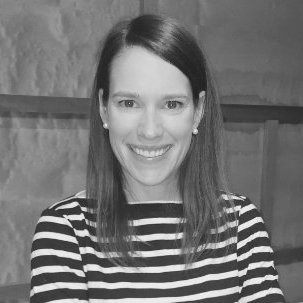The Latest Rankings from The Economist – What Do They Mean?

Back in June, we tackled the loaded question of whether or not the MBA rankings matter. (And of course, it depends.) But regardless of how reliant on or independent from the rankings your school selection decisions were, you’ve likely gotten comfortable with your choices by now. That is, until The Economist published their 2016 full-time global MBA rankings late last week and led you to question everything you thought you knew. Wait, Booth is ranked #1? And The University of Queensland Business School is ranked #10, ahead of Wharton and INSEAD?

Before you go back to the drawing board on your Round 2 target school list, take a moment to consider a couple of caveats to these latest rankings.
Unlike U.S. News & World report, another popular rankings publisher, The Economist ranks MBA programs on a global scale, based on a broader range of criteria that may favor non-US programs
A key point to remember when it comes to rankings is that they are subjective – first and foremost subjective to that publication’s ranking methodology. And each publisher has a very different approach to that methodology. In fact, The Economist has the most complex methodology among its peers, considering 22 different criteria in its rankings. Criteria such as “range of and access to overseas study programs”, “number of language courses available”, and 3 different Student Diversity measures weigh into The Economist rankings while not factoring at all into U.S. News & World Report’s methodology, for example. Those kinds of measures can inherently favor non-US MBA programs (primarily due to the US-centric makeup of US MBA programs). In general, The Economist strives to take the point of view of the student experience, which is less of a focus for other publishers that may weigh corporate recruiters’ perspectives and undergrad GPA more heavily. The bottom line is that while rankings can be helpful in your school selection process, take them with a grain of salt and do your homework to understand the analysis that underlies the rankings and how that aligns (or doesn’t) with your priorities and objectives. To dig into this further, you can find the full methodology explanations here:The Economist and U.S. News & World Report.
Volatility in the rankings rarely, if ever, reflects a true improvement or deterioration in a program’s quality
The first thing that struck me as I was reviewing The Economist’s latest rankings is the level of volatility even in the top 10. Kellogg rose 5 places to #2, Stanford rose 8 places to #5, INSEAD dropped 5 places to #13 – all in one year. It is highly unlikely that any of these world-class programs would have changed so drastically in a matter of 12 months to truly deserve such shifts in the rankings. So the next logical place to look is again, the methodology. Did it change this year vs. the last? And the simple answer is yes! This year, The Economist added a new criterion under its Student Quality measure, which then shifted the weights assigned to all other criteria. While this may be more detail than you ever wanted, it’s important to understand that the devil is in the details when it comes to the rankings and what they mean. So again, just because your dream school dropped by 5 places on this ranking doesn’t mean that any notable shifts in the program’s strengths, recruiting power, or culture have taken place. So stay calm and carry on with your applications!
When it comes to your MBA applications, our team at Vantage Point absolutely believes that knowledge is power. So really commit yourself to the due diligence process, speak to as many people as you can, follow your schools on social media, read up about the school on credible news sites and publications, even check out the rankings (because I know you will even if I tell you not to!) to reach the conclusions that are right for you. But remember that any data point or factor should be one of many that go into a well-rounded and well-informed decision. And if your gut is telling you that something doesn’t seem right, then listen to it. After all, the MBA application process is much more art than science.
Best of luck to you! If you’d like to chat more about the rankings or about anything related to your MBA applications, please reach out to us. We love to hear from you!




